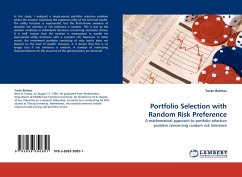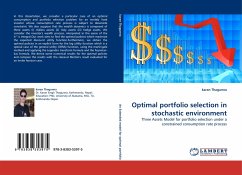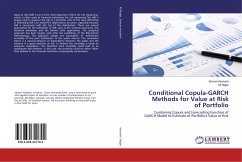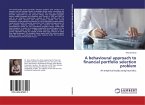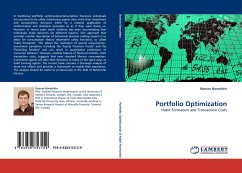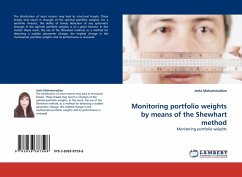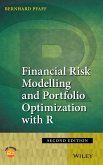In this study, I analyzed a single-period portfolio selection problem where the investor maximizes the expected utility of the terminal wealth. The utility function is exponential, but the Pratt-Arrow measure of absolute risk aversion or risk tolerance is random. This is due to the random variations in individual's decisions concerning stochastic choice. It is well- known that the investor is memoryless in wealth for exponential utility functions with a constant risk tolerance. In other words, the investment portfolio consisting of risky stocks does not depend on the level of wealth. However, it is shown that this is no longer true if risk tolerance is random. A number of interesting characterizations on the structure of the optimal policy are obtained
Bitte wählen Sie Ihr Anliegen aus.
Rechnungen
Retourenschein anfordern
Bestellstatus
Storno

